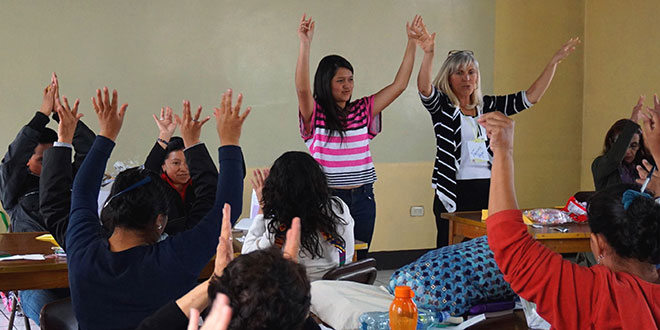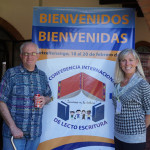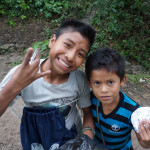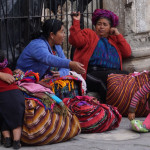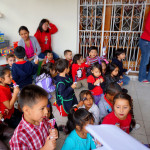Helping Mayan teachers create “joyful learning” and inspiring U.S. educators back home are two reasons why Dr. Tammy Ryan, associate professor of Reading Education and director of the Master of Education in Reading Education program, went back to Guatemala.
Ryan and nine other U.S. reading professors conducted research and taught workshops earlier this year for teachers in Guatemala City and Xela, with topics including literacy improvement, collaboration, and effective instruction methods.
“Guatemala is always a rewarding experience, and I bring back my learning to embed in courses and my work in the community,” she said of her annual trips to the Central American country. “So many at Jacksonville University and in the community have provided and contributed to this work by providing supplies such as pens, crayons, books and more in each of the four years I’ve traveled to Guatemala. It’s exciting and important work.”
Ryan’s workshop in Guatemala emphasized a number of teaching strategies. For example, one exercise involved having the teachers put their hands in the air to engage them in using body gestures to applaud peers’ responses. The cheer is called “fireworks,” and the exercise shows how teachers can use cheers to celebrate children’s discoveries.
The tips and guidance offered were a big hit, Ryan said.
“The focus was on helping them create ‘joyful learning classroom environments,’ ” she said. “The goal is to transform classrooms from rote instruction and teacher-directed lessons to classrooms filled with inquiry, discussions, discoveries and celebrations. The workshop was well-received and very much appreciated.”
Ryan, along with Dr. Jeanne Cobb, professor of Literacy Education at Coastal Carolina University, and Dr. B.P. (Barbara) Laster, director of Graduate Reading Programs at Towson University, were selected to speak on their research in March at the 2015 Comparative and International Education Society (CIES) conference in Washington, D.C. In addition, their findings are included in a chapter titled “Renewal in the Land of Eternal Spring: Teacher Educators Reflecting on Their Practice” in the 2015 book “Advancing Teacher Education and Curriculum Development through Study Abroad Programs” (IGI Global).
In addition to aiding the teachers in Guatemala, another purpose of the trip was to study how such an international teaching experience might affect the beliefs and practices of experienced American literacy teacher educators.
Some of the recommendations the researchers offered instructors in the U.S. are:
- Encouraging graduate students to write seminar papers that include global literacy, not just research studies from the United States;
- Increasing emphasis on English-language learners within undergraduate and graduate coursework and programs;
- Adding more practical school-based experiences in required courses to support K-12 children who are bilingual or trilingual;
- Learning more Spanish;
- Discussing how to make schooling in the United States more valued – a stark contrast was noted between U.S. students who feel “entitled” and Guatemalans who greatly appreciate education; and
- Promoting, with stronger conviction, a culture of lifelong literacy within schools, cities and the nation.
 Wave Magazine Online Jacksonville University News Hub
Wave Magazine Online Jacksonville University News Hub
